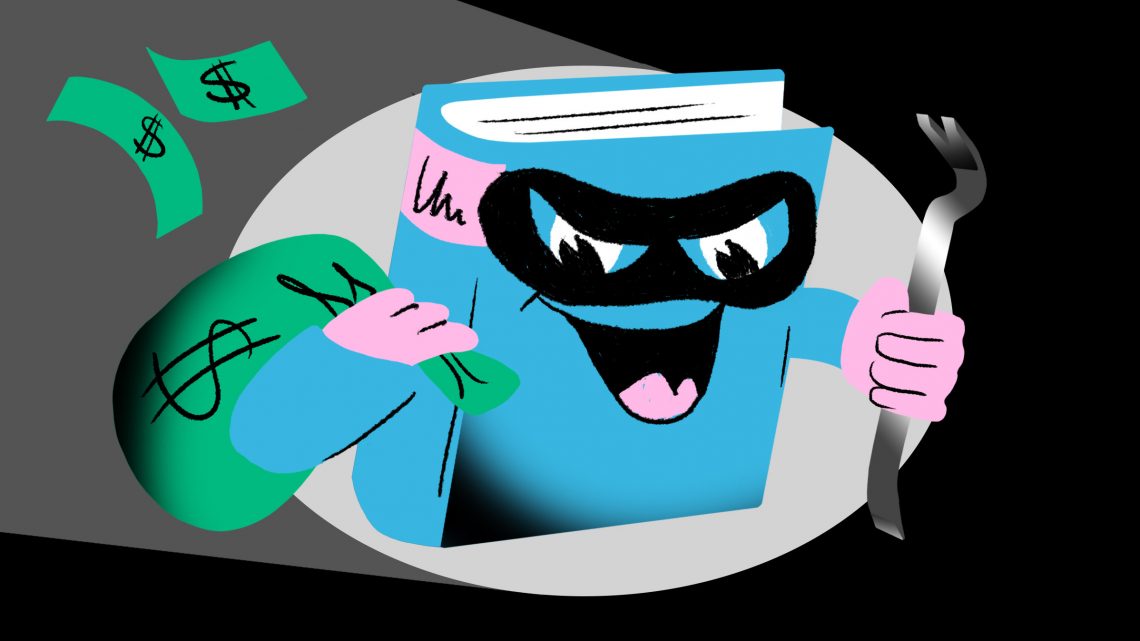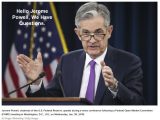
People Are Finally Fighting Back Against the College Textbook Industry ‘Scam’
May 22, 2019Jeremy Cucinella first suspected college kids like him were being scammed starting around 2005. He was taking a biology class at Campbell University in North Carolina, where he said he was told students couldn't make do with a used version of the required textbook. In fact, the 37-year-old recalled paying about $65 extra for something known as an "access code," or a one-time-use password that would ostensibly provide supplementary online materials. He never actually needed the code, he said, and after graduating with a "ton of student debt," Cucinella decided to get into the used textbook business himself in order to help other young people coming up through the same system.
Cucinella is now a regional manager at Virginia Pirate Corporation, which owns textbook brokers that sell used books to students at a handful of colleges in his area. The company is also the plaintiff in a federal lawsuit filed earlier this year that gets at the core of what critics have long described as a brazenly predatory model pitting young people across the country against colleges in bed with a handful of monopolistic publishers.
In the lawsuit, Trident Technical College, a two-year public school in North Charleston, South Carolina, is accused of perpetrating a "scam" by failing to give students a clear way to opt out of a deal cut between the school and Pearson—one of the country’s five textbook giants—to include the cost of required online texts in tuition fees. Pearson and other big players like McGraw-Hill have defended this increasingly common "inclusive access" model as a cost-efficient one that ensures students are ready to go on day one, and colleges, including Trident Technical, have argued the new-age approach saves students serious money.
But when McGraw-Hill and Cengage, another major player in the textbook industry, announced plans to merge earlier this month, experts and advocates worried even more exorbitant costs might be coming, potentially setting the stage for a new frontier of academic corruption. Just as a troubled industry seems poised to consolidate further, however, coordinated resistance against it has begun to coalesce for the first time. In fact, Cucinella's lawsuit is just part of a pattern of increasingly aggressive pushback from teachers, students, and experts against a model they say has long been corrupt—and that keeps getting worse.
"It's a broken marketplace," said Kaitlyn Vitez, who heads up the Make Higher Education Affordable campaign at the Public Interest Research Group (PIRG). "Normally a supplier sets cost and consumers decide if they're willing to pay it. In the textbook market, five companies—soon to be fewer—set the price and convince the professor to adopt the product, and the student who is going to be the purchaser of the materials has to pay whatever the publisher says. These publishers are abusing their place in the marketplace and taking advantage of students."
Traditionally, the textbook industry made its money by releasing new editions of books. Sometimes these iterations reflected breakthroughs in the academic fields they covered, though they often seemed to amount to little beyond the previous version with a couple of new images. Regardless, they cost an estimated 12 percent more with every release on average, which has ultimately led to the price of textbooks rising four times faster than the rate of inflation. As the Atlantic reported in 2013, the price of textbooks had outstripped everything from healthcare to houses since 1978, rising some 812 percent along the way.
To further increase their profits in the early aughts, publishers started making "custom textbooks." As the Wall Street Journal reported, the idea was that the companies would agree to pay schools a small royalty fee per book if the institution included slightly amended versions of common textbooks branded with the university's logo on syllabi . A student probably wouldn't realize that the material was essentially the same minus the logo, and fewer students would buy books second-hand on sites like Amazon. Custom books accounted for 12 percent of the $3.5 billion market in 2006—which means it brought the textbook companies $420 million in sales in that year alone.
But as its profit margins have shown signs of sagging, with the industry seeing more competition crop up online, textbook giants have increasingly veered toward the "inclusive access" model. Although college reps continue to insist that going digital often decreases the cost of materials, the fact that they can't be re-sold means students may end up paying more in the end.
"The bigger picture is how textbook publishing finally hit the wall in terms of how much they could raise prices without pricing themselves out of the market," said Nicole Allen, director of open education at the Scholarly Publishing and Academic Resources Coalition (SPARC). "All of the turbulence we're seeing in the market now is publishers grasping for a new model that can bring sticker prices down while keeping Wall Street happy."
If the lack of options is disturbing to some students, the mechanics of how publishers woo professors and college administrators is even more so. Ethically dubious textbook "inducements"—the polite term for what skeptics say amount to bribes—have been illegal in a patchwork of states since at least the late 80s. But in 2013, CBS News reported on a Middle Tennessee State professor who was offered $2,500 to "review" a textbook. Other tales of ethically dubious behavior on the part of company sales reps abound. To take one example: In November 2015, Brian Goegan, who until recently was a clinical assistant professor of economics at Arizona State University, received an email inviting him to the Loews Coronado Bay Resort near San Diego on Valentine's Day weekend—all on Pearson's dime.
The email said it was not a sales pitch and did contain an ethics agreement, but he still felt it was a clear example of quid-pro-quo. When contacted for comment, a Pearson spokesperson said that the company has a strict anti-bribery policy that's in accordance with all state and local laws. But this, Goegan pointed out, apparently doesn't preclude big players like Pearson from routinely offering conference trips and lunches to professors who may be in a position to make them money.
"All this stuff is carefully crafted to be above-board, but it's no secret what is going on," he told VICE. "It's a lot of wining and dining, and as soon as you decline a book or as soon as your department starts picking books for you, these companies suddenly become a lot less interested in having you at their conferences."
Goegan recently called out his school's provost for allegedly forcing students to buy access codes, sending an email last month to the entire economics department that subsequently went viral. In the message, he claimed the provost there took a deal with Cengage. As InsideHigherEd reported, the gist of his accusation, which the college has categorically denied, is that, in return for a grant, the school compelled undergraduates to buy a $100 program called MindTap from the company, and also promised to fail at least 30 percent of students to somehow make it seem more effective.
"There were some semesters where I had over 1,000 students in my classes," Goegan said. "With that many students, my choice of textbook would direct $100,000 to $200,000 in spending per semester. It's no surprise that publishers will go to great lengths to get you to adopt their product."
It's not just textbook sellers and rogue professors pushing back against the academic equivalent of deals cut in smoke-filled rooms; students are getting involved, too. Nick Sengstaken moved from New Hampshire to North Carolina to study saxophone and political science because the tuition at his home state's flagship university was too expensive. Early in his education at UNC-Chapel Hill, though, he said he was faced with a rude awakening about the hidden costs of college: A music history professor asked students to buy a book he had written himself, which came bundled with a CD, and was priced in the hundreds of dollars.
The now-21-year-old said he helped lead a rebellion, finding a version of the book for $20, though it was missing about one-third of the content he and classmates needed to study. Realizing that this kind of choice was relatively common—and unacceptable—Sengstaken said he and other students got more than 360 professors at the school to sign a pledge that they would try to lower costs associated with taking their courses to about $75 each. In two years, he claimed, the average amount of money that Chapel Hill students were spending on textbooks decreased from about $1600 to $972. Meanwhile, students have lobbied Congress to pass and then renew a $5 million Open Textbook pilot, which provides grants to schools in order to implement course materials that are free to download.
"Education can have an incredible effect on peoples' lives," Sengstaken said. "That music history class was kind of a wake-up for me. If we're faced with those kinds of bills as a result, is that really just? I don't think it is."
Correction 05/22/2019: Because of an editing error, the deck on a previous version of this piece referred to a viral tweet authored by a professor when in fact the professor wrote a letter that subsequently went viral on the platform.
Sign up for our newsletter to get the best of VICE delivered to your inbox daily.
Follow Allie Conti on Twitter.


